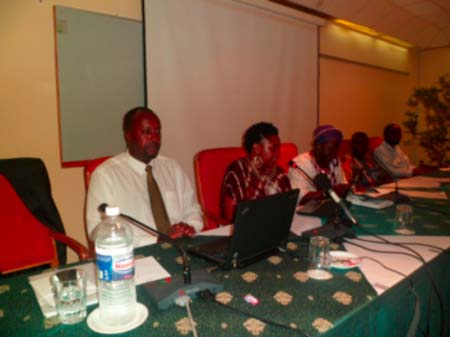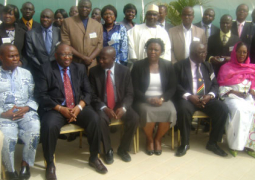
Held at the Kairaba Beach Hotel in Kololi, the training brought together participants from various government departments and the private sector.
The training was held to build the national capacity on trade and development to support the country’s development drive.
In her official opening remarks on behalf of the permanent secretary for Ministry of Trade, Industry and Regional Integration, Baturu Camara-Ceesay said the training was organised by the ministry of trade, in collaboration with the WTO, UNECA and the Enhanced Integration Framework (EIF) project on trade and development, to target members of the national policy decision-making committee.
The workshop was in line with The Gambia’s effort at mainstreaming trade in the relevant sectors as well as the work towards creating linkages between trade promotion needs and national development objectives.
The workshop was also held to enhance the capacity of the national trade policy decision-making body on the special and differential provisions in the various WTO agreements, the utilization of aid for trade opportunities and other related matters in the interest of The Gambia, she said.
The issues on trade and development, she noted, are very important to the work of the WTO and its partners.
“The WTO Agreement recognizes the linkages between trade and development, including sustainable development and there are special provisions for developing and least developed countries,” she said.
The four-day training is expected to expose participants to all relevant matters related to trade and development, especially the special provision on trade and development captured in the various agreements of the General Agreement on Trade and Tariffs (GATT), among others.
She further challenged the participants to pay attention to the issues being discussed and aimed at increasing trade opportunities for developing and least developed countries like The Gambia.
According to her, the workshop is also expected to help them to identify the achievements and opportunities existing, especially in addressing trade-related infrastructure such as access to cheap energy, quality infrastructure and trade facilitation logistics for business and exports.
For her part, Jane Karonga, UNECA representative, expressed delight to be facilitating the training on trade and development for The Gambia.
She commended the WTO for their partnership in funding the trade and development capacity building in the country.
She then went on to give a brief history of the Africa trade policy of the United Nations, saying the centre was established in 2003 to strengthen human and institutional capacity of African member states, formulate and implement sound trade policies within the countries, and effectively participate in trade negotiations.
For her part, Aime Murigande of the WTO said The Gambia is a least developed country (LDC) and there are some issues that have been discussed at the WTO concerning LDC participation in the multi-lateral trading system which can only be realised if they achieve certain level of development.
She advised the participants to make good use of the knowledge and skills gained from the training.
Read Other Articles In Article (Archive)
Infanticide suspect admitted burying her baby alive
Feb 15, 2010, 4:26 PM
My worst enemy (Part 2)
Feb 27, 2013, 9:53 AM



